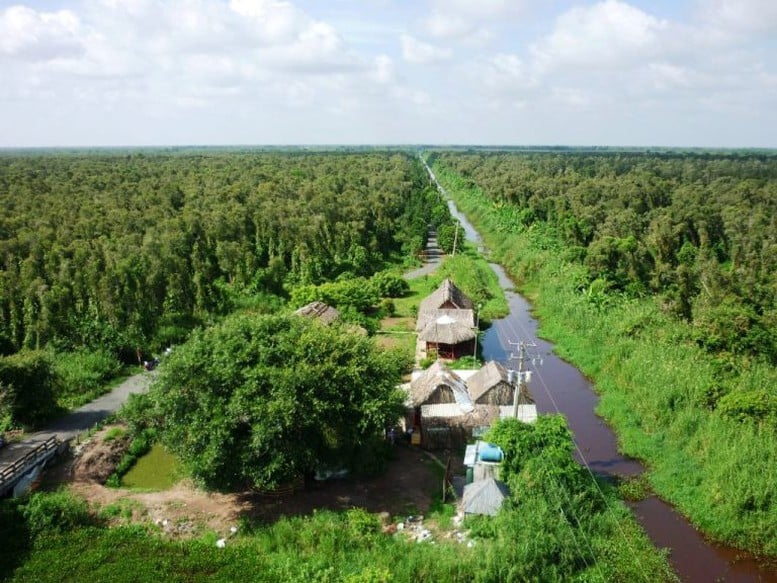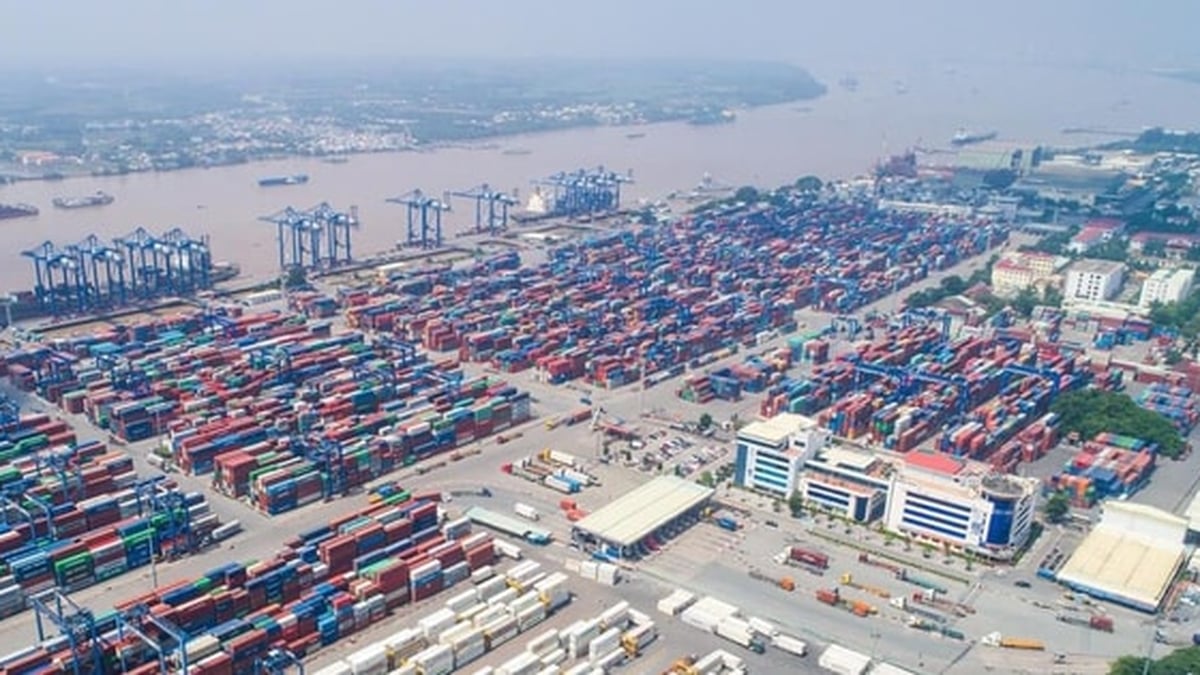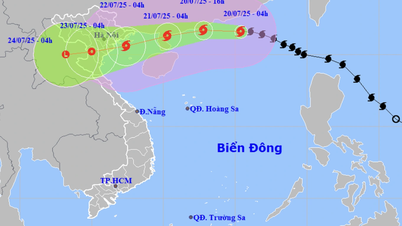
On July 18, in Hanoi , the Institute of Development Consulting (CODE) coordinated with other organizations to organize the "Vietnam Net Zero Forum 2025: Carbon market in the new era".
Vietnam is one of the countries most seriously affected by climate change. At the 26th Conference of the Parties to the United Nations Framework Convention on Climate Change (COP26), Vietnam committed to achieving Net Zero by 2050 with many major solutions to reduce emissions in the industrial, agricultural , transport and energy sectors; in addition, focusing on developing renewable energy sources such as wind power, solar power and measures to increase energy efficiency.
According to Dr. Le Xuan Nghia - Director of the Institute of Development Consulting, the Net Zero commitment is extremely necessary to, on the one hand, minimize the negative impacts of climate change, promote the transition to green development; on the other hand, help Vietnam strengthen international cooperation, attract investment resources for development goals.
"Vietnam's journey to Net Zero is not long. The next 25 years will be a challenging journey as it must achieve many dual goals, both reducing emissions and achieving high growth targets to become a developed, high-income country. This journey requires strong cooperation from the whole community," Dr. Le Xuan Nghia emphasized.
With the theme "Carbon Market in the New Era", this Forum will update the Net Zero trend in the world as well as Vietnam's Net Zero Journey through policy movements, institutions, actions and initiatives, economic , social, environmental, technological practices...
Carbon market trial expected to start by end of 2025
Sharing about carbon credit transactions, Deputy Director of the Department of Climate Change (Ministry of Agriculture and Environment) Nguyen Tuan Quang said that two issues need to be paid special attention to: First, each type of carbon credit must be created according to specific standards and calculation methods, often called carbon credit creation methods. These methods must ensure transparency and comply with regulations.
Second, the trading of carbon credits must be under unified management by the State. If not well regulated, there will be two consequences: The national commitment to reduce emissions will not be achieved if credits are sold abroad without control. The domestic market will suffer from a shortage of credit supply.
The Ministry of Agriculture and Environment is developing a Decree on international exchange of emission reduction results for sectors that need to fulfill their greenhouse gas emission obligations and carbon credits. Relevant ministries and sectors are urgently building the necessary legal corridor and technical infrastructure, striving to pilot the carbon market by the end of 2025.
The Ministry of Finance has also submitted to the Prime Minister for consideration and approval the Decree on Carbon Trading Platform. Accordingly, this trading platform will focus on managing and trading domestic carbon credits according to domestic standards, while complying with international standards as stipulated in Articles 6.2 and 6.4 of the Paris Agreement, along with independent mechanisms such as Vera and Gold Standard. All these credits will have to be registered on a unified system, ensuring centralized and transparent management.
At the Forum, analyzing the legal framework for sustainable development in Vietnam, Associate Professor, Dr. Nguyen Dinh Tho, Deputy Director of the Institute of Strategy and Policy on Agriculture and Environment (Ministry of Agriculture and Environment) said: The carbon market in Vietnam is in the stage of forming the foundation, with a fairly clear initial legal corridor, and relevant entities have begun to approach and participate.
However, many legal gaps still need to be filled through detailed technical guidance systems. Management, monitoring and implementation capacity at the local and enterprise levels needs to be strengthened through systematic training programs and professional support mechanisms. Carbon trading models need to be built according to international standards, ensuring openness, transparency and transaction efficiency.
Market development needs to be linked to digitalization of the monitoring system, ensuring accurate, timely, and verifiable data. When the market is fully operational, the regulatory role of the state, the proactive participation of the private sector, and effective international cooperation will be the pillars to ensure the sustainability and long-term development of Vietnam's carbon market.
Thu Cuc
Source: https://baochinhphu.vn/ban-giai-phap-van-hanh-thu-nghiem-thi-truong-carbon-tai-viet-nam-10225071819511478.htm




































































































Comment (0)